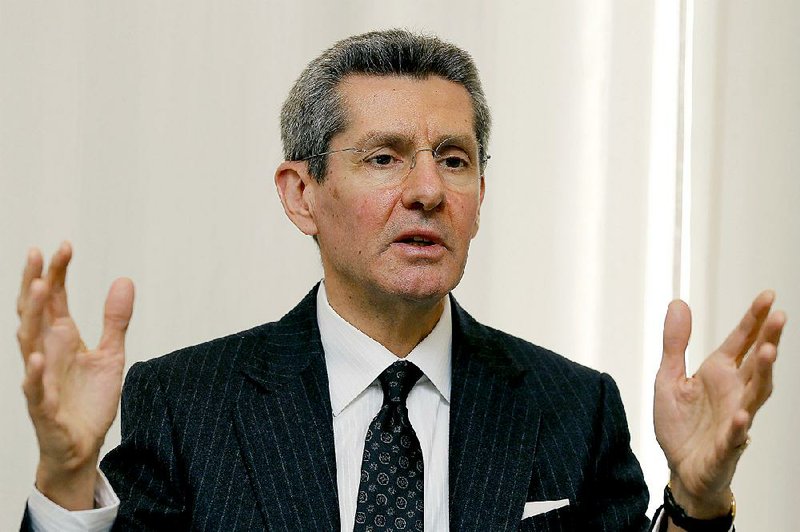SANAA, Yemen -- Yemen's Shiite rebels pressed their offensive in the country's south Thursday as a Saudi-led coalition bombarded them from the air in at least six cities, less than two days after announcing the end of a month-long campaign against the Iran-supported militants.
Riyadh had said Tuesday that it was entering a new phase in its campaign against the Shiite rebels, known as Houthis, who captured Yemen's capital, Sanaa, last year. The air campaign is aimed at pushing back the rebels and restoring President Abed Rabbo Mansour Hadi, a close U.S. ally who fled to Saudi Arabia last month.
The coalition's spokesman said operation "Decisive Storm" was ending and announced the start of a new phase called "Renewal of Hope," which would focus on diplomacy, humanitarian aid and counterterrorism.
But hours after the announcement, new airstrikes hit the rebels and their allies.
The strikes continued Thursday, officials and witnesses said, as the Houthis sent reinforcements to the south, where they have been trying to capture the port city of Aden. Hadi had declared Aden the country's temporary capital after fleeing Sanaa earlier this year.
The Saudi airstrikes have slowed the Houthi advance on Aden, but the rebels have reached areas near the city center, where fierce fighting has been underway for days.
The Saudi-led coalition, which includes the kingdom's Persian Gulf allies as well as Egypt and Sudan, began airstrikes March 26 in a bid to crush the Houthis and allied military units loyal to former President Ali Abdullah Saleh.
The Saudis view the rebels as an Iranian proxy bent on expanding Tehran's influence across the region. Shiite Iran has provided political and humanitarian support to the Houthis, though both Tehran and the rebels deny it has armed them.
During a visit to the small Persian Gulf nation of Bahrain, Yemeni Foreign Minister Riad Yassin repeated accusations that Iran was arming the Houthis.
"These militias are attacking all Yemenis as part of an Iranian plan in the region," he said.
He and his Bahraini counterpart, Khalid bin Ahmed Al Khalifa, stressed the need for greater humanitarian aid but gave no indication of any progress in efforts to end the fighting.
In Yemen, loud explosions shook at least six cities as warplanes targeted the rebels and their allies.
At least six airstrikes targeted an air base, a military camp and a number of weapon caches in the western port city of Houdida. In the western city of Taiz, warplanes bombed the headquarters of Battalion 35, led by pro-Saleh commanders. In the nearby city of Ibb, the airstrikes targeted an educational institute and a college suspected of being used by Houthis to store weapons, Yemeni officials said.
Airstrikes in Aden targeted hotels and a police club occupied by Houthis and Saleh loyalists, and in the central province of Marib warplanes targeted rebel reinforcements. In the city of Dhale, another gateway to the south, airstrikes targeted schools and clubs suspected of being used by the Houthis to store weapons and assemble fighters. Residents said the Houthis and Saleh's forces were shelling Dhale.
All Yemeni officials spoke on condition of anonymity because they were not authorized to talk to the media. Witnesses asked not to be named, fearing for their safety.
As the strikes continued, Paolo Lembo, the United Nations resident coordinator in Yemen, said a renewal of talks on ending Yemen's conflict is "inevitable" and that behind-the-scenes diplomatic efforts could get results in the coming weeks, including a possible U.N.-hosted conference involving most parties.
Lembo, speaking at a hotel in Amman, Jordan, said all sides "are aware that there is no other solution" than a political settlement, but that fighting will likely continue for some time.
At the United Nations, Secretary-General Ban Ki-moon on Thursday nominated Ismail Ould Cheikh Ahmed to be the new special envoy to Yemen, who would guide future peace talks.
His predecessor, Jamal Benomar, resigned last week, after criticism from Persian Gulf countries. Benomar's four years of trying to broker a peaceful political transition in Yemen fell apart in the rebel uprising and the airstrike response.
Meanwhile, Pakistan's Prime Minister Nawaz Sharif and army chief Gen. Raheel Sharif arrived Thursday in Saudi Arabia to push for negotiations to resolve the conflict. The two were to meet with King Salman to discuss the crisis, according to Pakistan's Foreign Office.
Saudi Arabia and Pakistan are close allies, and Islamabad has supported the Saudi-led coalition, though it declined to contribute any troops or military assets.
Information for this article was contributed by Asif Shahzad, Reem Khalifa, Karin Laub and Cara Anna of The Associated Press.
A Section on 04/24/2015

